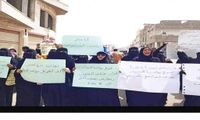The General Directorate of Passports in Saudi Arabia has announced important directives regarding the exemption from accompanying fees for certain categories of expatriates born in the Kingdom. This decision is significant as it aims to ease the financial burden on expatriates and facilitate their residency process.
Saudi Arabia is home to millions of expatriates from various nationalities, all of whom are required to pay annual fees for the accompanying individuals who reside with them. However, the new directive specifies that not all expatriates will be exempt from these fees, but only those belonging to specific categories.
According to the General Directorate of Passports, children born in Saudi Arabia, regardless of their parents' nationality, will not be subject to the accompanying fees. This includes children born to a Saudi mother and a foreign father, as well as those born to two foreign parents. The Passports Department has made it clear that the exemption does not extend to all expatriates, but aims to support families in maintaining their residency status without the additional financial strain.
Moreover, the Passports Department has set a fee of 400 Saudi Riyals for those expatriates who do not fall under the exempt categories. Paying this fee is a prerequisite for ensuring their continued stay in the Kingdom. The decision to exempt certain groups is part of a broader effort to simplify residency processes and promote family reunification among expatriates.
Among the categories exempted from the accompanying fees are all children of expatriates born on Saudi soil, spouses of Saudi citizens, and foreign spouses of Saudi nationals. Additionally, the exemption covers children of foreign wives married to Saudi citizens, first wives of residents, students studying in the Kingdom, military personnel from various nationalities, holders of diplomatic passports, and wives residing in the Kingdom with children under the age of 18.
In light of these exemptions, the Passports Department has also outlined some fixed fees related to residency. For instance, the renewal fee for domestic workers is set at 600 Saudi Riyals, while the fee for other residents is 650 Saudi Riyals. For women married to Saudi citizens, the renewal fee is 500 Saudi Riyals, and companies will pay 600 Saudi Riyals for a one-year residency permit.
While the announcement of these fee exemptions has been welcomed by many, some misinformation has circulated on social media regarding a blanket waiver of all residency fees for expatriates. The General Directorate of Passports has confirmed that such claims are unfounded and should not be heeded, urging the public to rely on official sources for accurate information.
In addition to these updates, the Passports Department has also provided information regarding the grace period for residency renewals. After the residency period expires, expatriates are granted a grace period of up to 90 days to renew their residency. Failure to renew within this timeframe may result in financial penalties or even deportation from the Kingdom.
In another significant development, the Ministry of Human Resources and Social Development in Saudi Arabia has initiated the "Hakiba Al Madrasia" program, aimed at supporting students in need of financial assistance for school supplies. This initiative is particularly vital for families benefiting from social security, as it alleviates the financial burden of educational expenses.
The Ministry has specified that the support will be available only to students aged between 6 and 18 years. Children who are not enrolled in the social security program will not be eligible for this support, as the initiative aims to assist those who truly require financial aid for educational purposes.
The Ministry of Education has announced that the third academic semester for the year 1446 AH will commence in the month of Ramadan, with the expected date for disbursing the Hakiba Al Madrasia support set for March 1, 2025. The first day of classes is anticipated to be on Sunday, March 2, 2025.
To ensure that all eligible families receive the necessary support, beneficiaries are encouraged to update their personal information regularly. This will help streamline the process and guarantee that assistance is provided to those who meet the criteria.
The collaboration between the Ministry of Education and the Human Resources Development Fund is pivotal in ensuring comprehensive educational support for all students at the beginning of each academic semester. This partnership aims to prevent families from facing significant financial burdens as they prepare for the new school year.
As the school year approaches, the Ministry is committed to ensuring that students have the necessary resources for a successful academic experience. The Hakiba Al Madrasia program is a crucial step in supporting families, particularly those with limited income, by providing them with the means to secure essential school supplies.
In summary, the recent announcements from both the General Directorate of Passports and the Ministry of Human Resources and Social Development reflect Saudi Arabia's ongoing commitment to supporting its expatriate population and ensuring that families have access to educational resources. These initiatives are designed to promote stability and welfare among residents, helping to create a more inclusive and supportive environment for all.


